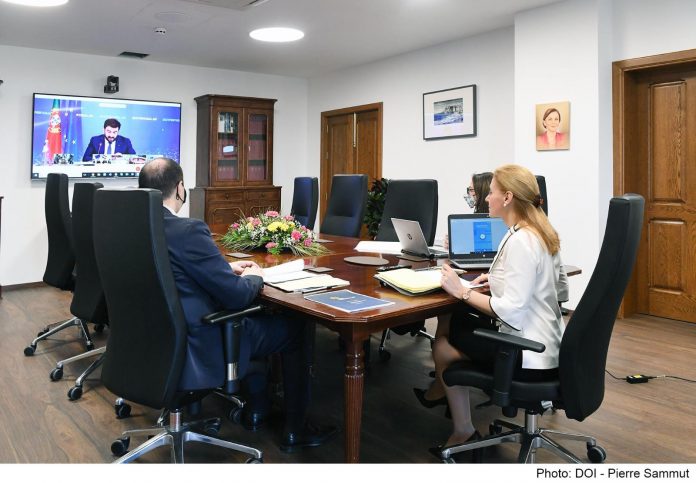“In view of the current challenges posed by the ongoing Covid-19 crisis and the need to ensure with our green and digital transitions, it is essential that we revisit the role which education and training should play through the European Pillar of Social Rights for a more equal European social model,” said Minister for Education Justyne Caruana, during her intervention in the Informal Ministerial Meeting for Education Ministers “Towards the Porto Social Summit – The contribution of education and training”.
Minister Caruana emphasised that Malta believes that putting special emphasis on inclusivity and accessibility for high-quality education for all needs to be a central tenet to ensure that the future European social model works for everyone, which was one of the main endeavours during Malta’s Presidency of the EU Council.
Malta has, across the board, actively sought to put education for all into practice, especially through the ‘My Journey: Achieving through different paths’ reform, to move away from a ‘one-size-fits-all’ approach and towards a more inclusive and equitable programme, giving parity of esteem to general, vocational and applied subjects. To this effect, in 2019 Malta launched two policy documents reinforcing practices and services in mainstream schooling, to ensure accessibility and inclusion of children with disabilities.
Minister Caruana informed that Malta has been a firm proponent for access to quality and affordable childcare services, as this is essential to provide quality early childhood and education, while at the same time facilitating continued access to the labour market for parents. Since April 2014, Malta’s free childcare scheme has supported working parents in order to ease their continued labour market participation.
Another priority for Malta is the enhancement of digital literacy amongst young learners, which needs to be a central element in harnessing the future opportunities posed by the digital transition.
Minister Justyne Caruana said that a National Strategy for Digital Education and Transversal Skills, targeting students, educators, parents/guardians and citizens, is currently being drawn by the Ministry for Education. Meanwhile, the one tablet per child initiative provides each student with a free tablet in the fourth year of primary school. This enabled us to mainstream digital tools in education systems.
Malta further believes that the Youth Guarantee scheme remains a key essential initiative to address NEETS and assist Europe’s youth with a better transition into an inclusive labour market. Qualitative apprenticeships are pivotal in order to ensure we can strike a balance between theoretical and on-the-job training and ensure long-term employability.
Minister Caruana said that the challenges brought about by COVID-19 have further exacerbated the need to continue modernising education systems and building sustainable strategies for inclusive and open-ended pathways which cater for all abilities and thus tap into the potential of all students. The COVID-19 pandemic has also taught us that sustainability is the key to resilience and, in this regard, Malta is at the forefront in promoting a broad and holistic view of Education for Sustainable Development (ESD) as a crucial tool through formal, non-formal and informal education.
She continued that a major step forward locally in this regard was the launch of the Eco-Schools Programme (EkoSkola), empowering learners, through a whole-school approach, with transferable skills, enabling them to become active citizens able to participate in decision-making on a personal, communal and national level, and to integrate sustainability concepts in our curricula. Such approaches in the long term actively contribute to the cultural shift towards embracing a green economy, as well as a blue economy, both of which are of vital importance to Malta.
“Moving forward, we must acknowledge that the European Pillar of Social Rights is not a static commitment with a start and end date, but a constant investment that reflects the changing realities of life in the EU,” concluded Minister for Education Justyne Caruana.










